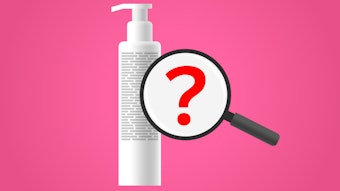
The U.S. Federal Trade Commission (FTC) is calling for public comment on its Green Guides for the use of environmental claims in marketing. The guidelines aim to help marketers avoid making claims that are unfair or deceptive under Section 5 of the FTC Act. Details for submitting can be found on the FTC website.
The commission is seeking to update the guidelines based on increasing consumer interest in buying environmentally friendly products. In fact, as reported by Global Cosmetic Industry, today, 64% of surveyed consumers say sustainability is very important when considering the purchase of a beauty product.
See archived: FTC Calls for Comments on its Revised 'Green' Product Claims Guidance
“Consumers are increasingly conscious of how the products they buy affect the environment, and depend on marketers’ environmental claims to be truthful,” said Bureau of Consumer Protection Director Samuel Levine. “We look forward to this review process, and will make any updates necessary to ensure the Green Guides provide current, accurate information about consumer perception of environmental benefit claims. This will both help marketers make truthful claims and consumers find the products they seek.”
The Green Guides were first issued in 1992 and were revised in 1996, 1998 and 2012. They provide guidance including how consumers are likely to interpret particular claims and how marketers can substantiate these claims to avoid deceiving consumers.
See related: 2022's Top Beauty Brands, Retailers and Sustainability Leaders: Cosmetify's Index
The FTC is requesting general comments on the continuing need for the guides, their economic impact, their effect on the accuracy of various environmental claims, and their interaction with other environmental marketing regulations. The commission also seeks information on consumer perception evidence of environmental claims, including those not in the guides currently.
Specific issues for which the FTC is seeking comments include:
- Carbon offsets and climate change: The current guides provide guidance on carbon offset and renewable energy claims. The commission invites comments on whether the revised guides should provide additional information on related claims and issues;
- The term recyclable: Among other things, the FTC seeks comments on whether it should change the current threshold that guides marketers on when they can make unqualified recyclable claims, as well as whether the guides should address in more detail claims for products that are collected (picked up curbside) by recycling programs but not ultimately recycled;
- The term Recycled Content: Comments are requested about whether unqualified claims about recycled content – particularly claims related to pre-consumer and post industrial content – are widely understood by consumers, as well as whether alternative methods of substantiating recycled content claims may be appropriate; and
- The need for additional guidance: The commission also seeks comment on the need for additional guidance regarding claims such as compostable, degradable, ozone-friendly, organic and sustainable, as well as those regarding energy use and energy efficiency.










